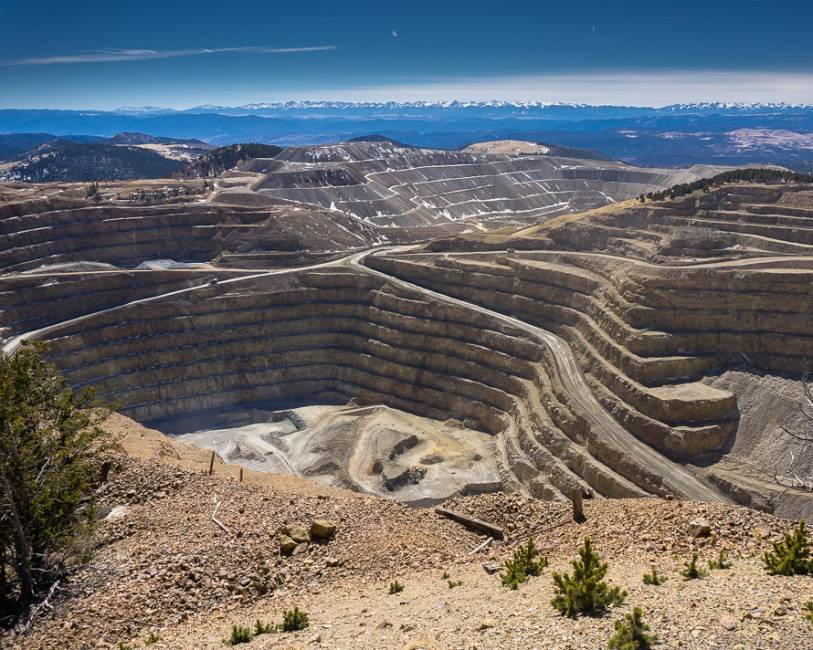
YEREVAN—The latest independent environmental impact assessment (EIA) on the controversial Amulsar mining project has been turned over to the Ministry of Nature Protection for further review. Prime Minister Nikol Pashinyan made that announcement less than two days after signaling his tentative approval for the project’s resumption. This apparent backpedaling came in the wake of outrage by environmental groups, as well as public dissent from within the Prime Minister’s own party.
“Last year I made a commitment to only allow the mine to function if it were 100 percent certain that it would not contaminate the waters at Jermuk, Lake Sevan and local water streams,” Pashinyan explained, “99.9 percent wouldn’t cut it.” He asserted that he consulted with his Cabinet, the Ministry of Nature Protection as well as affected communities. According to the Prime Minister, the Minister of Nature Protection later requested to further review the findings of the EIA. The Ministry has been tasked with determining whether a fourth EIA would be necessary to fully address questions over the mine’s environmental impact. The latest EIA, commissioned by the Armenian government and conducted by the resource management consulting firm ELARD, cost Armenian taxpayers almost $400,000.
Opponents of the mining project have offered mixed, and even contradictory interpretations of the ELARD study. The findings have been both criticized as unprofessionally-conducted “lies,” but also endorsed as evidence of inconsistencies in Lydian’s own assessment, leading some to dub the study “Schrödinger’s EIA.” While the ELARD study confirmed that the Amulsar mine doesn’t risk contaminating Lake Sevan or Jermuk, it did find flaws which could cause ‘manageable’ contamination to nearby freshwater streams. Lydian has since committed to implementing all 16 recommendations from the study to mitigate that risk.
Interim Lydian CEO Edward Sellers said the news of a potential fourth EIA was “more than disappointing.” The Anglo-Canadian mining consortium, which won the rights to exploit the mine from the previous government in 2012, has signaled that its patience over the matter was quickly eroding. The company’s British and Canadian subsidiaries both filed arbitration requests under their respective countries’ bilateral trade agreements with Armenia earlier this year, stopping short of initiating litigation. The mining company also won an appeal against some of the protesters illegally blockading the Amulsar site earlier this month.
The threat of legal action by the mining firm has been interpreted as blackmail by some activists in Armenia. Legal experts speculate that if this case proceeds to international arbitration, under the Investor-state dispute settlement (ISDS), Lydian International LTD could seek over $1 billion (between eight and ten percent of the country’s annual economic output) in compensation from the Republic of Armenia, recuperating its investment and lost potential earnings. Armenia also risks far greater damage to its international reputation as an investment-friendly destination at a time when the country is eager for capital inflow.
Having been thrust into the Prime Minister’s office last year as a result of mass popular demonstrations, Pashinyan has shown himself to be especially sensitive to accusations from the public of succumbing to pressure from shadowy foreign interests behind-the-scenes.
This was glaringly exemplified when respected political scientist Hayk Martirosyan publicly speculated that the Prime Minister’s ruling on the mine was motivated by backroom dealings. “There was no room for doubt that Pashinyan’s decision [to greenlight the Amulsar mine] resulted from collusion with Lydian Armenia,” read his Facebook post, which he later repeated several times for the media. These allegations prompted the Armenian National Security Service (NSS) to question him as a witness as part of their ongoing criminal investigation into the Lydian mine concession deal. The Sorbonne-educated analyst appeared to have no qualms about casually flinging accusations of high crimes at the Head of Government. In an interview with the press, he dismissed the NSS’ request that he provide evidence to back his allegations as “absurd,” arguing that he obviously didn’t have any and was just sharing his personal opinion.
A number of NGOs have also issued a joint open letter to the Ambassadors of the United States, the United Kingdom and Sweden, asking their respective countries to drop their support for the mining project. In it, the signatories called on “Ambassadors of western democracies [to] stand by high environmental standards for people in Armenia and with human rights values.”

Pashinyan, for his part, visited the communities of Vayots Dzor province affected by the mining project on April 23, where he listened to locals’ concerns. There, he reiterated that reaching a “fact-based” resolution to the mining dispute was his top priority. “I assure you that I have read all the letters and messages addressed to me,” the Prime Minister said. He also announced an impending consultation with the authors of the ELARD report to clarify some of the more ambiguous conclusions. The Prime Minister promised to release a fully-translated transcript of the meeting to the public.
Tensions over the controversial mining proposal which had simmered under the surface for over a decade re-emerged into the public discourse in a dramatic fashion last year when protesters physically blocked access to the site. Environmentalists have long warned of the ecological damage caused by unregulated mining operations in the country. While Lydian has argued that its extraction methods follow the strictest international environmental standards, activists are still not convinced, insisting that the risks posed to Lake Sevan’s strategically important drainage basin are too great.
Pashinyan has said that while he would never have accepted the deal had he been in power at the time, he is responsible for abiding by the country’s legal commitments. The investigation which he authorized last year into the matter has yet to report any evidence of criminal wrongdoing on the part of Lydian International, complicating any attempt to renege on the contract. During his August 19 announcement on Facebook Live, the Prime Minister argued, “We cannot afford to appear like a country which doesn’t respect contractual obligations.”

Author information
The post Armenian Government Reviewing Amulsar Impact Study Again appeared first on The Armenian Weekly.